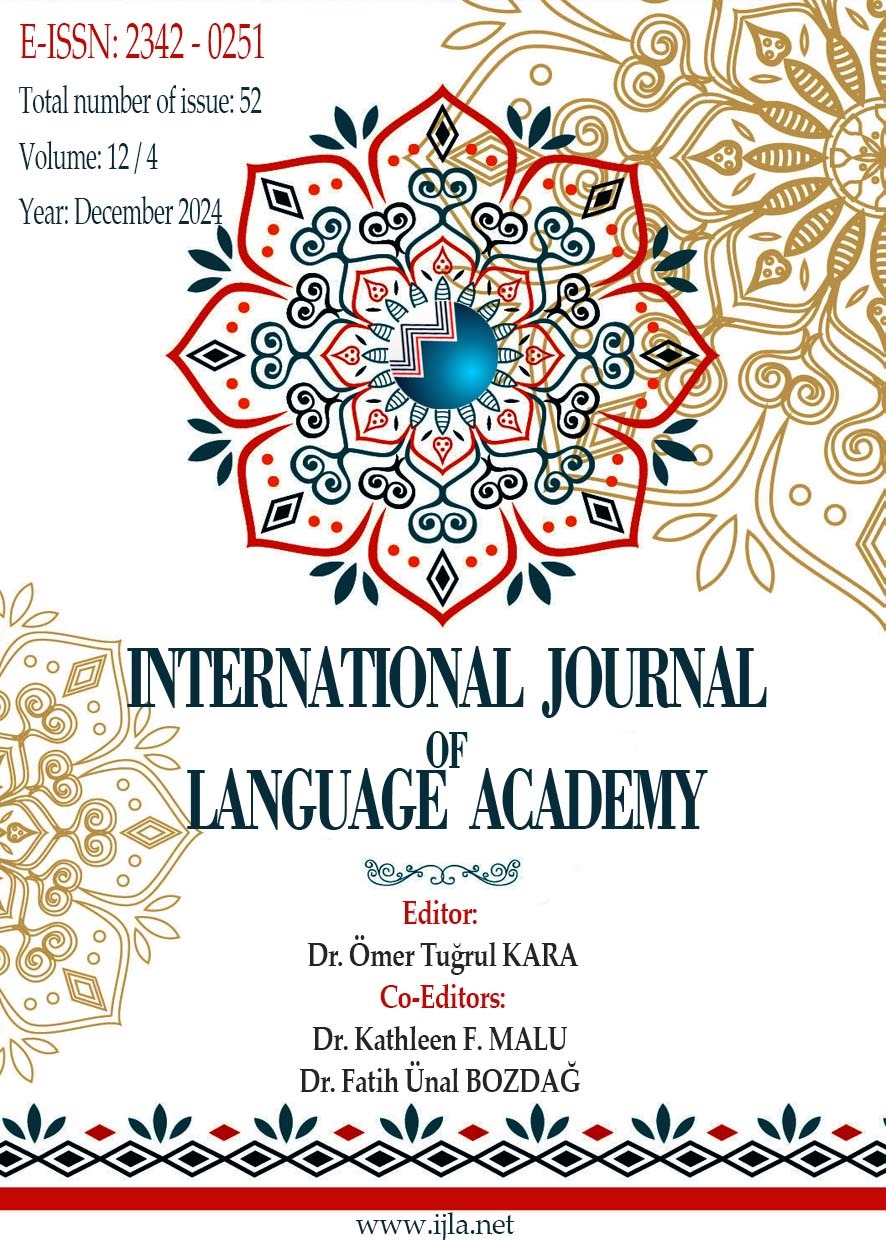Author :
Abstract
Mekândan ve zamandan bağımsız olma gibi özellikleriyle öğrenme ortamlarında esneklik sağlayan uzaktan eğitim, bilgisayar ve internet erişiminin yaygınlaşmasıyla bireylere fırsat eşitliği sunan önemli bir eğitim modeli haline gelmiştir. Nitekim öğrencilerin öğrenme sürecinde sorumluluk alması ve sorumluluklarının farkında olarak öğrenme süreçlerini kontrol etmesi gibi birtakım öz düzenleme becerilerini gerektirmesi ve geliştirmesi yönüyle yükseköğretim düzeyinde gittikçe benimsendiği ve daha yaygın bir şekilde kullanılmaya başlandığı görülmektedir. Bu bağlamda araştırmada Türkçe öğretmeni adaylarının uzaktan eğitime yönelik metaforik algılarının belirlenmesi ve betimlenmesi amaçlanmıştır. Nitel araştırmalardan olgubilim desenine göre tasarlanan çalışmada, Türkiye’nin doğusunda bir eğitim fakültesinde öğrenim gören 33 öğrenciden veri toplanmıştır. Katılımcılara “Uzaktan eğitim ………… gibidir. Çünkü ………” cümlesinin yazılı olduğu form verilerek bu cümleyi tamamlamaları istenmiştir. Verilerin analizinde, nitel veri çözümleme tekniklerinden içerik analizi kullanılmıştır. Verilerin analizi sonucunda Türkçe öğretmeni adaylarının %70’inin korsan kitap, kırık şemsiye, dublör ve fragman gibi olumsuz, %30’unun ise ışık, deniz feneri ve çöldeki kuyu gibi olumlu bakış açısıyla oluşturulmuş metaforlar ürettiği belirlenmiştir. Katılımcıların ürettikleri metaforların gerekçeleri değerlendirildiğinde ise sınırlılık/yetersizlik, belirsizlik/bilinmezlik, iletişimsizlik, sorunlu ve ihtiyacı karşılama olmak üzere dört olumsuz, bir olumlu kategori ortaya çıkmıştır. Bu bulgulardan hareketle katılımcıların uzaktan eğitimi, temel eğitim modeli olarak yetersiz bulduğu fakat olağanüstü durumlarda kullanılabilecek, eğitim sürecini tamamlayıcı bir model olarak gördüğü sonucuna ulaşılmıştır.
Keywords
Abstract
Distance education, which provides flexibility in learning environments with features such as being independent of space and time, has become an essential educational model that offers equal opportunities to individuals with the widespread use of computers and internet access. It is seen that it is increasingly being adopted and used more widely in higher education since it requires and develops specific self-regulation skills. This includes students taking responsibility for learning and controlling their learning processes by being aware of their responsibilities. In this context, the research aimed to determine and describe the metaphorical perceptions of Turkish teacher candidates towards distance education. In the study, which was designed according to the phenomenological design of qualitative research, data were collected from 33 students studying at a faculty of education in the eastern part of Turkey. The participants were given a form with the sentence “Distance education is like …………. Because ………” and were asked to complete this sentence. Content analysis, one of the qualitative data analysis techniques, was used in the analysis of the data. As a result of the data analysis, it was determined that 70% of the Turkish teacher candidates produced negative metaphors such as pirate books, broken umbrellas, stuntmen, and trailers. Conversely, 30% produced positive metaphors such as light, lighthouse, and well in the desert. When the reasons for the metaphors created by the participants were evaluated, four negative and one positive categories emerged: limitation/inadequacy, uncertainty/unknown, lack of communication, problematic, and meeting the need. Based on these findings, it was concluded that the participants found distance education inadequate as a basic education model but could be used in extraordinary situations. It was a complementary model to the education process.





